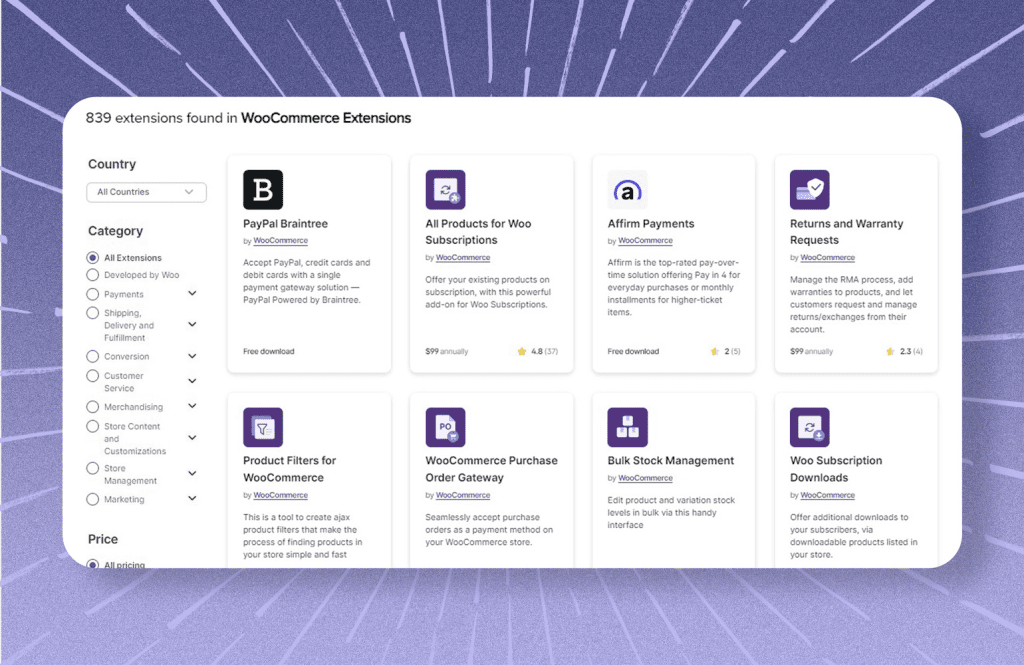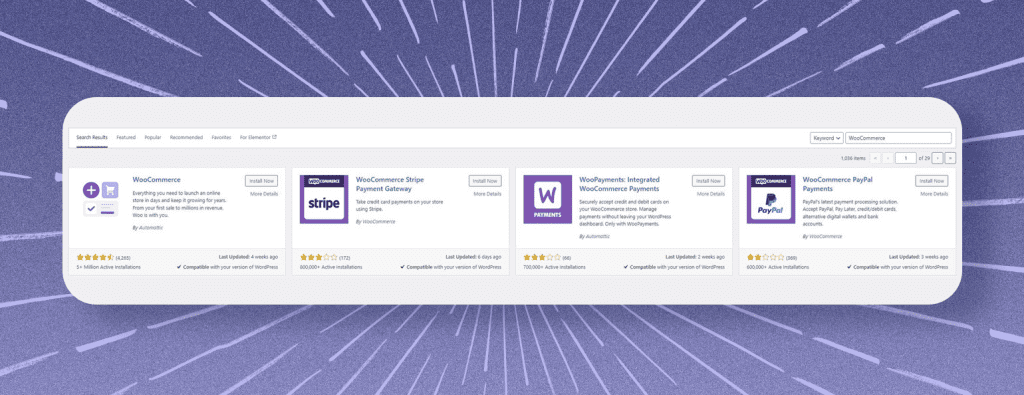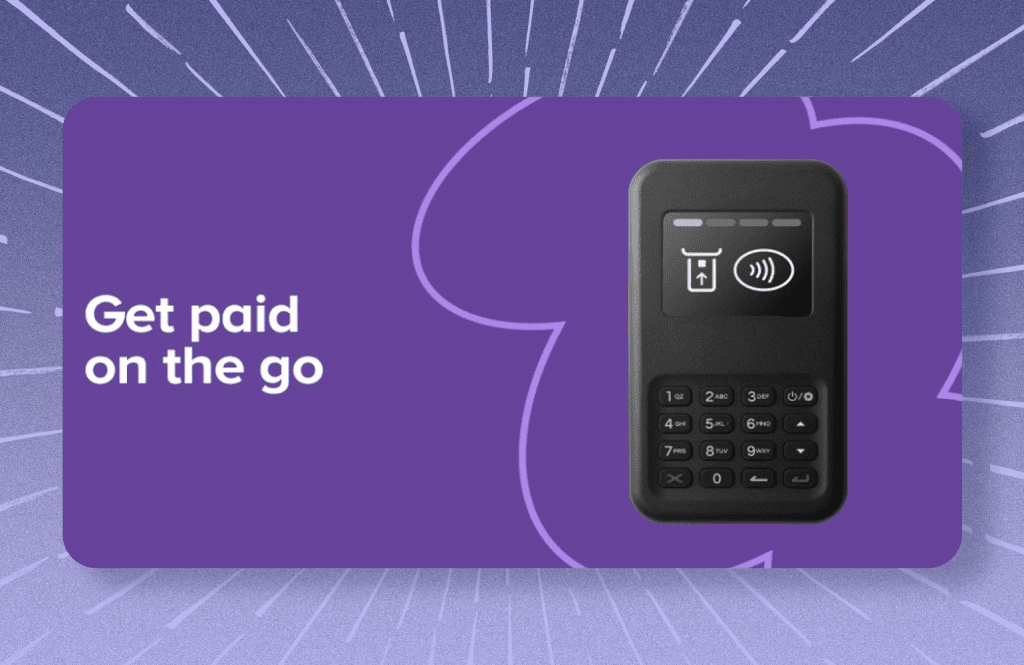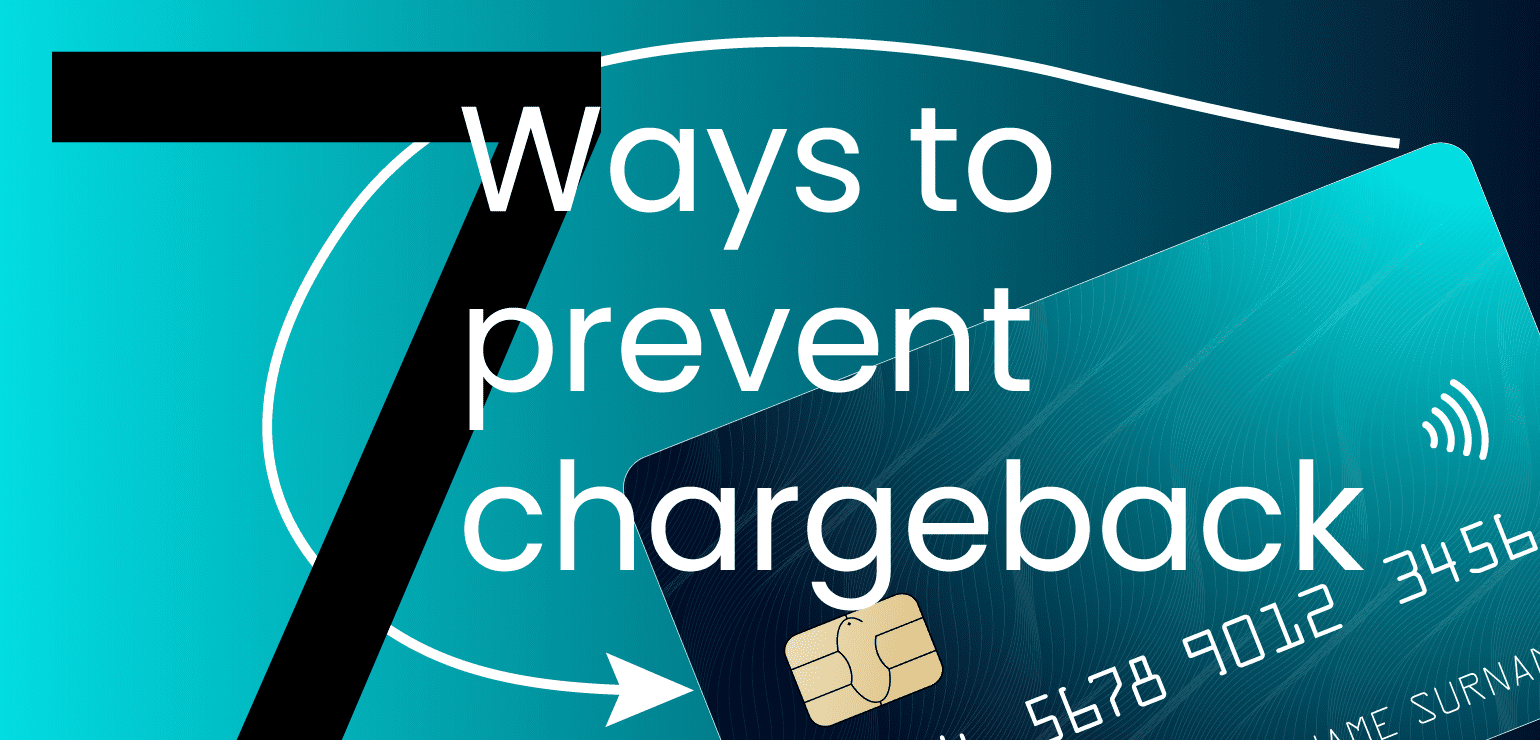The big eCommerce guide to WooCommerce

WordPress is a fantastic choice for websites. It’s low-cost and highly flexible – it’s no wonder that 34% of sites use it!
However, what do you do if you want to start selling on your WordPress website? The good news is that WooCommerce makes it easy to transform your site into a revenue-generating machine!
In this comprehensive guide, we’ll go through the pros and cons of WooCommerce, how much it costs, and whether you can use it in your brick-and-mortar store.
We’ll also look at the benefits of working with a WooCommerce agency, like us!
Want to know more about Shopify and Magento? Check out our other big eCommerce guides.
Article topics
- What is WooCommerce?
- What’s the difference between WooCommerce and WooPayments?
- What can you sell on WooCommerce?
- How much does WooCommerce cost?
- What are the advantages of using WooCommerce?
- What are the disadvantages of using WooCommerce?
- How can you integrate WooCommerce into your WordPress site?
What is WooCommerce?
WooCommerce is an eCommerce platform designed specifically for WordPress sites. By installing it, you can turn your WordPress website into a fully functioning eCommerce store.
15% of all eCommerce websites use WooCommerce to power their online stores.
Like WordPress, WooCommerce is open source. This means it’s freely available to everyone, from businesses to web designers.
As a result, it’s easy for developers to create extensions and plugins that give WooCommerce additional functionality.
What’s the difference between WooCommerce and WooPayments?
WooCommerce is the open source platform you host your eCommerce store on.
WooPayments is WooCommerce’s payment solution, which you can use to process payments on your eCommerce store.
Bear in mind that you don’t have to use WooPayments with your WooCommerce store – there are other payment gateways you can use if you prefer. For example, Stripe, PayPal, or Apple Pay.
What can you sell on WooCommerce?
Pretty much anything! WooCommerce is fantastic for selling physical products like homewares, clothing, and electronic devices.
You can also use WooCommerce to sell digital products like software, music, digital art, and eBooks.
However, there is a list of prohibited items you can’t sell using WooPayments. These include:
- Adult content
- CBD products (although WooPayments advises it is working on this)
- Counterfeit goods
- Firearms and ammunition
- Social media likes and views
- Tobacco (including vapes and e-cigarettes)
How much does WooCommerce cost?
WooCommerce is free to add to your WordPress store – there are no setup or monthly fees.
While it’s free, you have to pay for your website hosting costs and for any WooCommerce extensions you implement. While many WooCommerce extensions are free to use, some incur a charge – anything from £23 ($29) to £157 ($199) a year.

There is also a per-transaction charge for using WooPayments. For example, if you use WooPayments to manage your transactions in a UK-based store, you pay a base fee of 1.5% and 25p per card transaction. So on a £50 transaction, you pay WooPayments £1.
This fee depends on the payment method – for example, if you offer a buy-now-pay-later option like Clearpay or Klarna, you pay a higher transaction fee. There are also additional fees if a customer uses a payment method originating outside your country of origin.
What are the advantages of using WooCommerce?
So, why should you use WooCommerce over other website platforms?
Here are our thoughts.
It’s affordable
WooCommerce is an ideal choice if you have a small website budget, as it’s free to use. You only pay for web hosting, extensions, and a small charge on any products you sell.
Of course, while WooCommerce is a cost-effective option, it’s important to remember that costs for themes and extensions can quickly add up if you’re not careful.
If you want to take advantage of WooCommerce extensions, we recommend making a list of the features that are important to you and reading extension reviews before making a purchase.
It works alongside WordPress
A significant advantage of WooCommerce is that it works with WordPress. This means it’s easy to add eCommerce functionality to your existing WordPress website without spending time and money migrating to another platform.
Another bonus is that many WooCommerce themes are compatible with WordPress, meaning you can keep your existing website design.
You have full control over how your site looks and feels
As WooCommerce is open source, it’s highly customisable.
There are thousands of extensions that add extra functionality to your online store, and you can also use custom code if you’re a skilled developer. Alternatively, you can get a WooCommerce agency to add code on your behalf.
This makes WooCommerce a brilliant platform for companies that want their online stores to stand out from the crowd.
Want some inspiration for your WooCommerce website? Here are some stunning WooCommerce sites we love!
It scales with your business
As you can install extensions when needed, WooCommerce grows as your business does. For example, if you decide to implement an affiliate or loyalty programme as you scale, you can.
Here are some great WooCommerce extensions that will help boost your conversion rate as your store grows.
Although, it’s important to note that WooCommerce may not be the ideal option for extremely large stores – we’ll look at why later.
What are the disadvantages of using WooCommerce?
All eCommerce platforms have their pros and cons, and WooCommerce is no exception. Here are some reasons why it might not be ideal for your business.
You’re responsible for your own site
The main benefit of subscription platforms like Shopify is that you get everything included in the price. You don’t have to worry about hosting, and everything is automatically updated.
With WooCommerce, you have to manage your own hosting, domain, and ensure everything is secure. This means you need to ensure your team makes the necessary payments on time and that you regularly update your extensions so there aren’t any security issues.
There’s no customer support
As WooCommerce is open source and free to use, there is no customer support. This means if something goes wrong and you have any issues, you have to spend time looking for an answer.
The good news is that there is an active WooCommerce community, so you might be able to get help from the WooCommerce forum.
Working with a WooCommerce agency can give you support and peace of mind if something happens. At Xigen we have a one-hour response time in place, with a four-hour turnaround in an emergency.
It might not be ideal for larger businesses
In the past, WooCommerce had limitations. You could only receive 500 orders a day and host 10,000 SKUs on your eCommerce store. This meant it wasn’t ideal for businesses that got a lot of orders or sold many different types of products.
WooCommerce has now lifted these limitations. However, a large number of SKUs or orders can negatively affect your server resources, leading to slow loading times.
Using lots of WordPress and WooCommerce extensions can also affect your page loading time, as your pages have to make more requests to your server.
If you have an extensive product inventory or see a lot of orders, it’s crucial to optimise your store performance and ensure your hosting can handle everything,
(And, of course, remove any extensions you no longer need.)
How can you integrate WooCommerce into your WordPress site?
Adding WooCommerce to your WordPress site is easy.
Log into your site, go to Plugins and select Add New Plugin.
Search for WooCommerce and click Install Now.

Once you’ve installed WooCommerce, click the Activate Now button, and you’ll access the WooCommerce Setup Wizard.
By answering a few questions about your store, WooCommerce will configure your payment, shipping, and taxes, and recommend some extensions you might find helpful.
Can you use WooCommerce on another web platform?
No.
WooCommerce and WooPayments are locked to WordPress, which means you can’t use them on other platforms like Shopify or Magento.
Can you easily migrate a website to WooCommerce?
Yes! If you want to replatform your current site to WordPress and WooCommerce, this is relatively easy.
There are migration plugins that do the work for you, transferring your existing data from your old site to your new one. If your website is small, you can also migrate your content across manually, product-by-product.
Alternatively, you can work with a WooCommerce agency. We helped Canvas Tent Shop move from Magento to WooCommerce, providing a complete site redesign and brand-new eCommerce functionality at the same time.
Does WooCommerce let you sell in person?
Yes – you can use Woo In-Person Payments if you need Point of Sale (POS) functionality. Woo In-Person Payments are currently only available in the UK, US, and Canada.
To use Woo In-Person Payments, you need the WooCommerce mobile app and a WooPayments card reader – either the M2 or WisePad3.
You can purchase these card readers for a one-off payment, although be aware that there are still processing fees to pay on each transaction.

Alternatively, you can also use Square and PayPal Zettle to accept payments. The advantage of these POS systems is that they are available in countries other than the ones mentioned above.
In conclusion: is WooCommerce right for your business?
WooCommerce is relatively easy to use, scales with your business, and, most importantly, you don’t have to give up your established WordPress site if you want to start selling online.
In our experience, WooCommerce is the best fit for the following people.
- Businesses wanting a quick way to start selling. WooCommerce is easy to get started on – install the plugin on your WordPress site, add the extensions you want to use, and you’re ready to go
- Companies wanting to test their eCommerce model. Unlike platforms like Shopify, WooCommerce is free to set up – you only pay if you sell products. This makes WooCommerce a low-risk way to see if your eCommerce idea is viable
- Small and medium-sized businesses. WooCommerce is scalable – you add new features and functionality as your business grows
- Brands that want total control over their online stores. As WooCommerce is open source, you can precisely control how it looks, feels, and functions. You can also call on WooCommerce agencies to build custom features that are unique to your business
- Businesses that sell unique products. One of the benefits of WooCommerce is the wide range of items you can sell – from subscription packages to digital products
- Companies already using WordPress. WooCommerce is the perfect complement to WordPress – this means you can add an online store without having to replatform your site
Of course, WooCommerce isn’t suitable for everyone. If you operate a large business, you may be better off with a more robust enterprise platform that can offer all the features you need.
However, for most businesses, especially those with an existing WordPress presence, WooCommerce is a great option.
Looking for a WooCommerce agency to transform the way you sell online?
While WooCommerce is free and user-friendly, creating an eCommerce store that generates conversions for your business takes time and patience.
In this situation, a skilled WooCommerce agency can help.
At Xigen, we have decades of experience developing, designing, and maintaining WooCommerce sites across a range of industries.
Our developers will craft a bespoke WooCommerce website at source code level, providing you with a striking website that offers all the functionality your customers need.
Want to take the first step towards an amazing WooCommerce store that makes you stand out? Get in touch today.
Disclaimer: The information and pricing in this article are accurate as of March 2024.


 Back
Back
